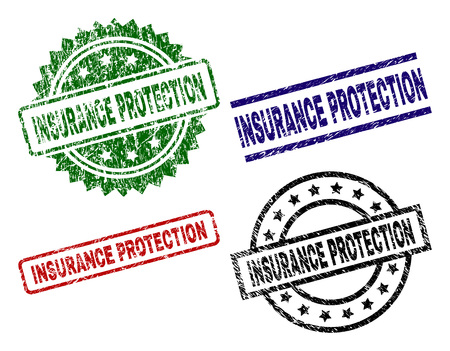Understanding Why Your Claim Was Denied
When you receive the unfortunate news that your auto insurance claim has been denied, it’s natural to feel frustrated or confused. However, the first step is to clearly understand why the denial happened. Insurance companies in the United States must provide a written explanation for every denied claim. This letter will outline the specific reasons behind their decision. Some of the most common reasons for denial include policy exclusions, lapses in coverage due to missed payments, filing a claim for an incident not covered by your policy, providing incomplete or inaccurate information, or waiting too long to report the accident. Take time to carefully review your denial letter—read every detail and note which part of your policy is being referenced. If any part of the explanation is unclear, don’t hesitate to contact your insurance agent or representative for clarification. Understanding exactly what led to your claim being denied will help you decide on your next steps and whether it makes sense to appeal the decision.
Gathering All Relevant Documentation
When your auto insurance claim is denied, one of the first and most important steps you should take is to collect all necessary paperwork related to your claim. This documentation will be critical if you want to dispute the denial or seek further assistance. Start by locating your auto insurance policy documents, as these outline your coverage details, terms, and conditions. Next, gather any accident reports—these can include police reports or incident forms filed at the scene. Photos of the accident, vehicle damage, or any injuries sustained are also valuable pieces of evidence.
Additionally, keep a record of all correspondence with your insurance company. This might involve emails, letters, or notes from phone calls with claims representatives. Having a clear timeline of communication can help you demonstrate that you followed proper procedures and responded promptly to requests for information.
Important Documents to Collect
| Document Type | Why It’s Important |
|---|---|
| Insurance Policy | Shows what is covered and under which circumstances |
| Accident/Police Report | Provides an official account of the incident |
| Photos | Visual proof of damages or injuries |
| Email/Letter Correspondence | Documents your communication history with the insurer |
| Repair Estimates/Bills | Details the cost of repairs or replacement items |
| Medical Records (if applicable) | Supports injury-related claims |
Keeping everything organized in a folder or digital file will make it easier if you need to appeal the denial or consult with legal counsel. Remember, being prepared with thorough documentation puts you in a stronger position when communicating with your insurance provider.

3. Contacting Your Insurance Company for Clarification
If your auto insurance claim has been denied, one of the most important steps you can take is to reach out directly to your insurance company for clarification. Don’t hesitate to call your claims adjuster or the insurance representative assigned to your case. It’s completely normal—and expected—to have questions when a claim doesn’t go your way, and your insurer should be able to explain the specific reasons behind their decision.
When you contact them, make sure to ask targeted questions. For example, you might want to know which part of your policy was cited in the denial, whether there was missing information, or if certain documentation didn’t meet their standards. Write down their responses so you have a clear record of what they’re asking for and any next steps.
Keep in mind that American insurance companies are required by law to provide a detailed explanation for any claim denial. If anything is unclear, don’t be afraid to ask for further details or examples—sometimes insurance language can be confusing, and it’s their job to help you understand it. Finally, find out exactly what information or documents they need from you to reconsider your claim. This could include photos, repair estimates, police reports, or other paperwork that may help clarify your situation.
By staying proactive and communicating directly with your insurer, you’re showing that you’re committed to resolving the issue—and you’ll have a much better chance of getting your claim reviewed successfully.
4. Filing an Appeal with Your Insurance Provider
If your auto insurance claim has been denied, don’t panic—most insurance companies have a structured appeals process that gives you the chance to present your case again. Understanding how to prepare and file an appeal can make a big difference in the outcome. Here’s what you need to know:
How to Prepare for Your Appeal
Start by carefully reviewing your denial letter. It should state the specific reasons why your claim was denied. Use this information to gather any documents or evidence that could address the insurer’s concerns. This might include photos, repair estimates, police reports, or witness statements. Organize your paperwork so it’s easy to reference during the appeals process.
Common Documents Needed for an Appeal
| Document Type | Purpose |
|---|---|
| Denial Letter | Identifies the insurer’s reasoning for denying your claim |
| Policy Declaration Page | Outlines coverage details and limits |
| Photos/Repair Estimates | Supports evidence of damage or necessary repairs |
| Police Report (if applicable) | Provides official documentation of the incident |
| Correspondence Records | Keeps track of all communications with the insurer |
Submitting Your Appeal and Supporting Documents
Once you’ve gathered all relevant documents, write a clear and concise appeal letter. In your letter, explain why you believe your claim should be covered, referencing specific policy language if possible. Attach copies of all supporting documentation. Make sure to follow any submission guidelines provided by your insurance company, such as mailing address or online portal instructions.
Tips for Effective Communication with Your Insurer
- Stay Professional: Remain calm and courteous in all interactions.
- Be Thorough: Double-check that all documents are included before submission.
- Keep Records: Save copies of everything you send and receive.
- Follow Up: If you don’t receive confirmation within a reasonable time, call your adjuster or claims representative.
- Ask Questions: Don’t hesitate to clarify any part of the appeals process you don’t understand.
The appeals process may take several weeks, so patience is important. By staying organized and proactive, you’ll improve your chances of getting a fair review and possibly overturning the initial denial decision.
5. Seeking Help from a Third Party
If you believe your auto insurance claim was unfairly denied, it’s time to consider bringing in outside help. Sometimes, despite your best efforts, working directly with your insurance company just doesn’t resolve the issue. In these cases, there are several options available for you to explore.
Contact Your State’s Department of Insurance
Every state has a Department of Insurance that oversees and regulates insurance companies. If you feel like your claim was handled improperly or unfairly, you can file a formal complaint with this department. They can investigate your case and may be able to mediate between you and your insurer. This process is free and often helps hold insurance companies accountable for their decisions.
Work with an Independent Adjuster
If you think the damage to your car wasn’t properly assessed, hiring an independent adjuster can give you a second opinion. Unlike the adjuster sent by your insurance company, an independent adjuster works for you and provides an unbiased evaluation of your claim. This can strengthen your case if you decide to appeal or negotiate further with your insurer.
Consult with an Attorney
If all else fails and you still believe your claim was wrongly denied, consulting with an attorney who specializes in insurance claims can be a smart move. An attorney can review your policy, explain your legal options, and even represent you in negotiations or court if necessary. Many lawyers offer free consultations and work on a contingency basis, meaning they only get paid if you win your case. Taking this step shows the insurance company that you’re serious about getting a fair resolution.
6. Exploring Alternative Solutions
If your auto insurance claim remains denied after your best efforts, it’s time to look at alternative solutions that can help you and your family move forward. First, consider mediation or arbitration. These are less formal ways of resolving disputes than going to court and can often lead to a fair outcome without the high cost or stress of a lawsuit. Mediation involves a neutral third party helping both sides find a compromise, while arbitration brings in an expert who makes a binding decision on the issue.
If you’re not satisfied with how your current insurance provider has handled your claim—even after mediation or arbitration—it might be time to consider switching companies. Research other insurers’ reputations for customer service and claims handling. Ask friends, family, or neighbors about their experiences, and don’t hesitate to get quotes from several providers before making a change. Finding an insurer who values honesty and transparency can give you peace of mind if another accident happens down the road.
Ultimately, protecting your family’s finances is what matters most. By exploring these alternative solutions, you can make sure you’re not left alone when dealing with denied claims and that you’re prepared for any future bumps along the way.


